Genetics
-
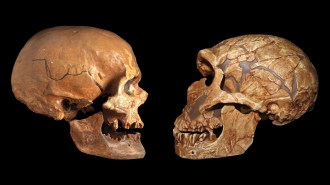 Genetics
GeneticsA new genetic analysis reveals that modern Africans have some Neandertal DNA too
Humans migrating back to Africa brought genetic material from humans’ extinct Neandertal relatives along for the ride.
By Bruce Bower -
 Archaeology
ArchaeologyA Siberian cave contains clues about two epic Neandertal treks
Stone tools and DNA illuminate an earlier and a later journey eastward across Asia.
By Bruce Bower -
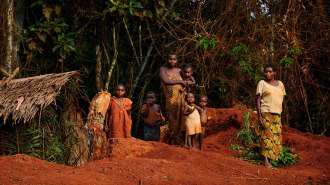 Genetics
GeneticsAncient kids’ DNA reveals new insights into how Africa was populated
Four long-dead youngsters from west-central Africa have opened a window on humankind’s far-flung African origins.
By Bruce Bower -
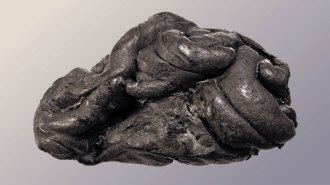 Archaeology
ArchaeologyDNA from 5,700-year-old ‘gum’ shows what one ancient woman may have looked like
From chewed birch pitch, scientists recovered DNA from an ancient woman and her mouth microbes and hazelnut and duck DNA from a meal she’d consumed.
By Sofie Bates -
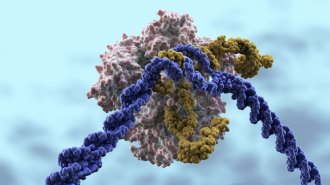 Genetics
GeneticsThe first U.S. trials in people put CRISPR to the test in 2019
Trials of the gene editor in people began in the United States this year, a first step toward fulfilling the technology’s medical promise.
-
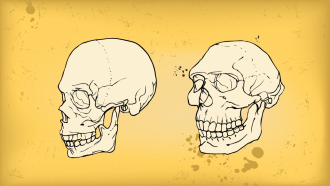 Humans
HumansA gene tied to facial development hints humans domesticated themselves
Scientists may have identified a gene that ties together ideas about human evolution and animal domestication.
-
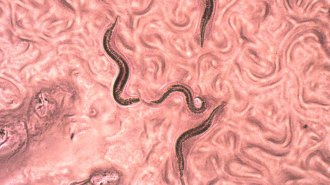 Animals
AnimalsDevil worm genes hold clues for how some animals survive extreme heat
Devil worms have many extra copies of genes tied to heat stress and cell death, which may help the critters survive deep underground, a study finds.
By Sofie Bates -
 Humans
HumansWhy screening DNA for ‘designer babies’ probably won’t work
While simulations suggest it’s possible to predict a child’s height from looking at an embryo’s DNA, real-world examples say otherwise.
-
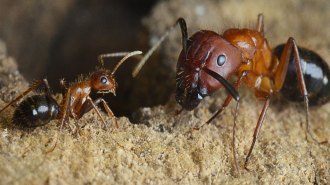 Animals
AnimalsFlipping a molecular switch can turn warrior ants into foragers
Toggling one protein soon after hatching makes Florida carpenter ants turn from fighting to hunting for food.
By Jake Buehler -
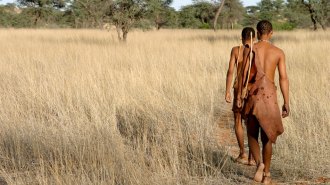 Humans
HumansHumans’ maternal ancestors may have arisen 200,000 years ago in southern Africa
New DNA findings on humankind’s maternal roots don’t offer a complete picture of how and when Homo sapiens emerged.
By Bruce Bower -
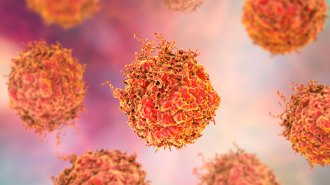 Health & Medicine
Health & MedicineA precision drug for prostate cancer may slow the disease’s spread
The drug olaparib could be used to treat men with certain genetic mutations and severe types of prostate cancer, a clinical trial finds.
By Sofie Bates -
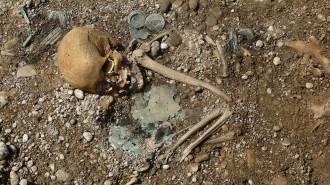 Archaeology
ArchaeologyAncient European households combined the rich and poor
Homes combined “haves” and “have-nots” in a male-run system, suggests a study that challenges traditional views of ancient social stratification.
By Bruce Bower